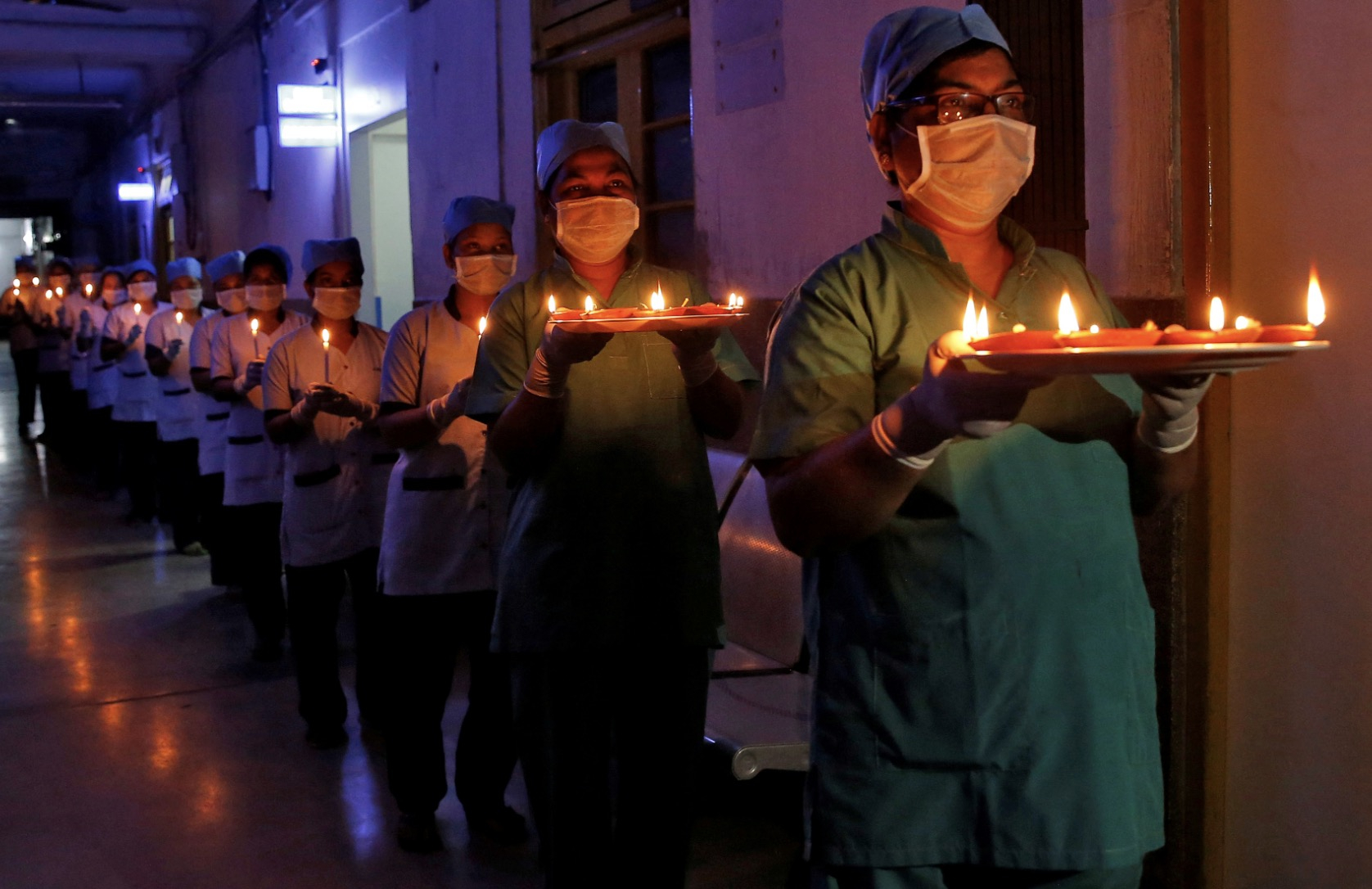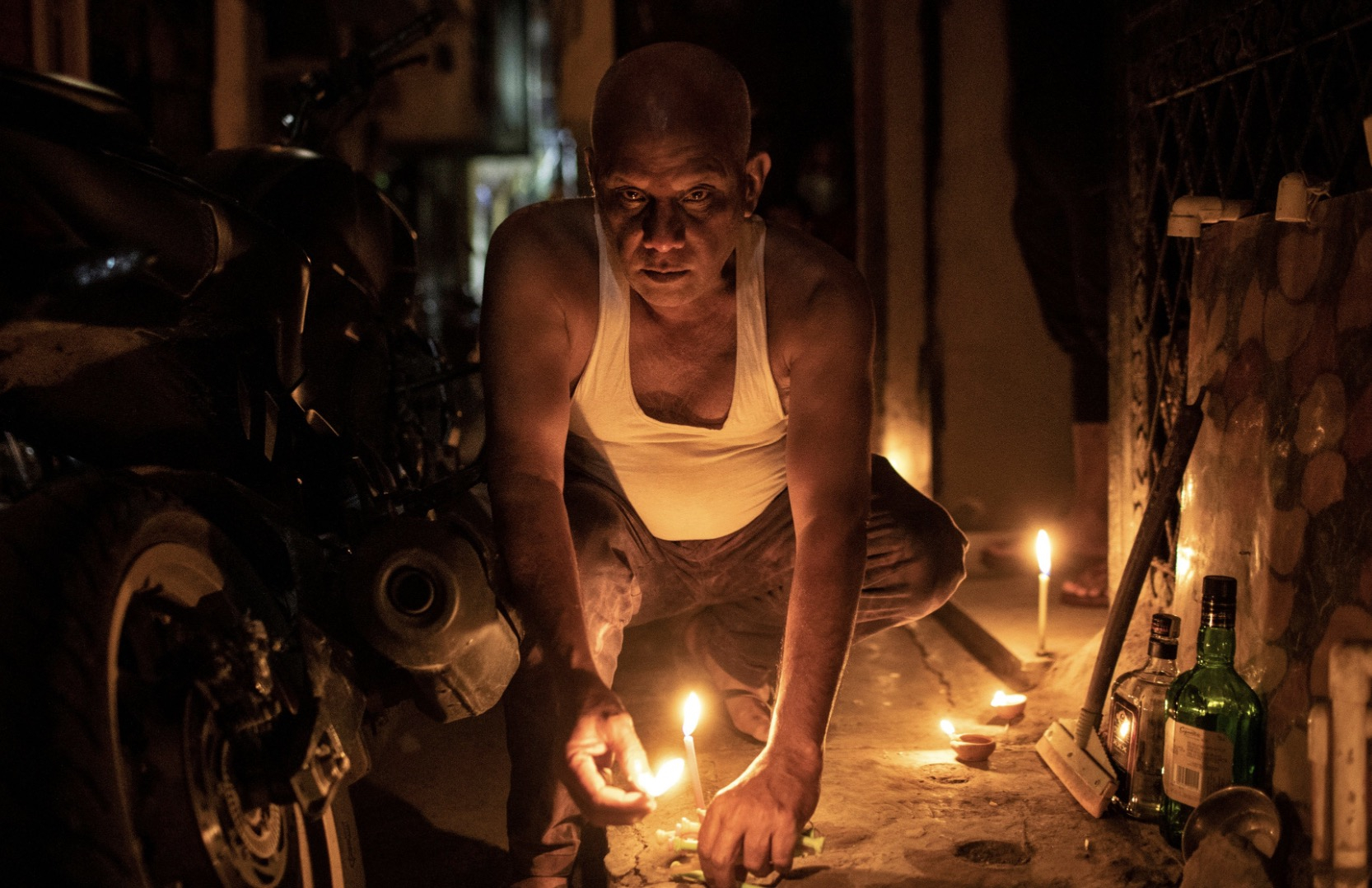The lights in millions of Indian households were turned off and candles lit as the clock struck nine on Sunday night in response to Prime Minister Narendra Modi's call for a gesture of solidarity to mark the national fight against the coronavirus pandemic.
On April 3, Modi called for citizens to symbolically enter the darkness and light candles or lamps or use the lights on their cellular phones to join the global "progress toward light and hope amidst the darkness spread by the pandemic."
The prime minister joined millions of Indians in switching off their lights for nine minutes and lighting candles, lamps or flashlights to express resilience during the coronavirus pandemic.
Many clapped, burst firecrackers, rang bells, blew conch shells and lit lamps outside their homes.
"These earthen lamps are lit because this gives out positive energy. Those who are fighting this coronavirus, like doctors, our soldiers – everybody – policemen who are helping (in ensuring the lockdown is successful), so this will help in giving them positive energy, and that's why we are doing it," said Akshata Joshi, a resident of Panaji.

Hospital staff carry candles and oil lamps to show solidarity with people who are affected by the coronavirus disease, as well as doctors, nurses and other healthcare workers from all over the world, during a 21-day nationwide lockdown to slow the spread of COVID-19, in Kolkata, India, April 5, 2020. /Reuters
Hospital staff carry candles and oil lamps to show solidarity with people who are affected by the coronavirus disease, as well as doctors, nurses and other healthcare workers from all over the world, during a 21-day nationwide lockdown to slow the spread of COVID-19, in Kolkata, India, April 5, 2020. /Reuters
In many places, people also played devotional music along with lighting lamps. Shivani Kapoor, who decorated her whole house with candles, was thrilled by the idea.
"We have been locked up in our homes for more than 10 days, and we don't know when this lockdown will end. Lighting the lamps today has given me energy to carry on for a few more days. It gives me mental strength to keep the fight on and adhere to social distancing," she said.
Although millions supported the call, there were critics as well. Social media platforms were full of memes against the idea. Opposition leader Rahul Gandhi tweeted, "India is simply not testing enough to fight the COVID-19 virus. Making people clap & shining torches in the sky isn't going to solve the problem."

A man lights candles after Indian Prime Minister Narendra Modi appealed to Indians to turn off their lights for nine minutes at 9 p.m. to mark the coronavirus fight in New Delhi, India, April 5, 2020. /Reuters
A man lights candles after Indian Prime Minister Narendra Modi appealed to Indians to turn off their lights for nine minutes at 9 p.m. to mark the coronavirus fight in New Delhi, India, April 5, 2020. /Reuters
The appeal to switch off the lights also set off an alarm bell that a surge in voltage due to a dip in demand could harm the power grids and cause a blackout. India's Power System Operation Corp, which oversees the national power grid, ordered all senior officials to be present at generating stations, substations and load dispatch centers across India between 6 p.m. and 10 p.m. on Sunday.
Street lights and lights in essential services like public utilities, municipal services, police stations and manufacturing facilities remained switched on.
On March 22, answering a similar call from Modi, millions of Indians went out onto their balconies at 5 p.m. with pots and pans to cheer frontline health care workers.
Two days later, Modi ordered a three-week lockdown for 1.3 billion people for all but essential trips to places like markets or pharmacies to prevent the spread of the virus.
(Cover: People stand on their balconies and light candles after Indian Prime Minister Narendra Modi appealed to Indians to turn off their lights for nine minutes at 9 p.m. to mark the coronavirus fight, during a lockdown to slow the spread of the coronavirus disease, in Mumbai, India, April 5, 2020. /Reuters)